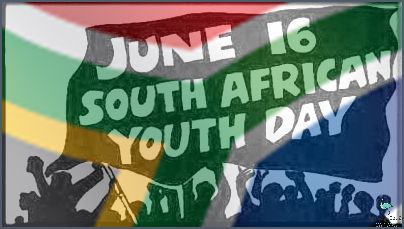
Youth Day South Africa is a national public holiday celebrated in South Africa on the 16th of June each year to commemorate the sacrifices of the young people who lost their lives during the Soweto Uprising of 1976. The day is used to reflect on the past and celebrate the courage and resilience of the youth of South Africa.
The day marks the beginning of a series of events that led to the end of apartheid in South Africa and the beginning of a democratic society. On June 16th 1976, thousands of school students in Soweto took to the streets to protest the introduction of Afrikaans as the language of instruction in their schools. The protests were met with a violent response from the police, resulting in the deaths of many of the protesting students.
The day has come to be seen as a symbol of strength and unity for the youth of South Africa, and the struggle for freedom and dignity for all its citizens. It is a day to celebrate the achievements of the youth in the struggle for democracy, and to remember those who sacrificed so much for the cause. It is also a day to reflect on the role of the youth in the current society, and to inspire the next generation of leaders in South Africa.
Contents
Youth Day South Africa History
Youth Day South Africa is celebrated every year on June 16th and commemorates the 1976 Soweto Uprising. The day is observed in order to remember the lives of the thousands of young black people who were killed in the uprising and to honor the South African youth who continue to fight for their rights. The uprising began when thousands of black students marched to protest the decision to make Afrikaans the primary language of instruction in their schools. The peaceful protest was met with a violent police response and the students were shot, resulting in the deaths of hundreds of protesters. The event is considered to be the catalyst for the end of the Apartheid government in South Africa. On Youth Day, South African citizens recognize the bravery of the students of Soweto and celebrate their cause by engaging in activities like youth sports, art, music, and more.
History of Youth Day
Youth Day in South Africa is a day that commemorates the uprising of students in Soweto in 1976 against the country’s oppressive apartheid regime. On June 16, 1976, thousands of black students from the South African township of Soweto marched to protest against the government’s decision to impose the Afrikaans language in African schools. The demonstrators were met with a violent response from the police and the march quickly turned into a full-scale uprising that spread throughout the country. This event marked a turning point in the struggle for freedom in South Africa and ultimately led to the collapse of the apartheid system.

To commemorate this important event in South Africa’s history, the country celebrates Youth Day on June 16 each year. On this day, South Africans of all backgrounds, ages and walks of life come together to celebrate the courage of the young people who took a stand against oppressive government policies. It is a day of remembrance, reflection and solidarity to honor the legacy of those who gave their lives to the struggle for freedom.
Youth Day is an important part of South African culture and heritage. It is a day for youth to come together, regardless of their background, to celebrate the courage of their predecessors and build solidarity for the future. On this day, the country celebrates the achievements of young people across the nation and recognizes their important role in shaping the future of South Africa. Youth Day also offers an opportunity for young people to reflect on their role in the country’s history and to commit to making positive change in the present.
Youth Day is a reminder that freedom and justice are still far from being achieved in South Africa and that there is much work to be done. It is an important reminder to the youth of South Africa that they are capable of making a difference and that they have the power to shape the future of their country.
Origins of the ‘Soweto Uprising’
South Africa’s Youth Day is a national holiday that commemorates the Soweto Uprising of 1976. The day marks an important moment in South African history, when a group of brave students took a stand against the oppressive policies of the apartheid government. The Soweto Uprising is seen as a pivotal moment in the struggle for freedom and equality in South Africa, and the holiday serves as a reminder of the resilience and strength of the South African youth.
The roots of the Soweto Uprising can be traced back to the early 1970s, when the apartheid government introduced a new set of policies designed to segregate the population. These policies included the Bantu Education Act, which required all black South African children to attend schools where they received a substandard education and were taught in Afrikaans, a language that was unfamiliar to many of them. This sparked widespread anger and resentment among the black population, who saw the act as an attempt to deny them their basic rights and keep them in a state of subjugation.
In response to the Bantu Education Act, a group of black South African students formed the South African Student’s Union, or SASO. The group organized a series of peaceful protests and demonstrations in an effort to oppose the apartheid government’s oppressive policies. On June 16th, 1976, a group of SASO members and their supporters gathered outside of Orlando West Secondary School in Soweto for a peaceful demonstration, but were met with police violence. As a result of the police’s heavy-handed tactics, a riot broke out, sparking a wave of popular unrest across South Africa.
The Soweto Uprising was a pivotal moment in South African history, as it highlighted the power of peaceful protest and resistance. The uprising also served to inspire hope and courage among the oppressed people of South Africa, and convinced the international community to take a stand against apartheid. The Soweto Uprising was a major factor in the eventual dismantlement of the apartheid system, and served as a reminder of the power of the people.

Today, South Africa’s Youth Day is a celebration of the courage and perseverance of the brave students who took part in the Soweto Uprising. The day is a reminder of the strength of the human spirit, and a celebration of the power of peaceful protest and resistance.
Impact of the Uprising
Youth Day in South Africa is an annual national holiday commemorating the Soweto Uprising of 1976. The day serves as an important reminder of the power of young people to effect positive change in society and the lasting impact of the uprising on South African history.
On June 16, 1976, thousands of black South African students marched through the streets of Soweto in protest of the Afrikaans language being imposed as the language of instruction in their schools. The peaceful protest quickly turned violent as police attempted to suppress the demonstration with rubber bullets, tear gas, and live ammunition. The day would go down in history as the Soweto Uprising, resulting in the deaths of over 176 people, most of them children and teenagers.
The Soweto Uprising marked a major turning point in South African history. It highlighted the role of the youth in the struggle against apartheid and inspired further resistance to the oppressive regime. The bravery and resilience of the young people in Soweto was an inspiration to many and a reminder of the power of a unified people.
The impact of the Soweto Uprising is still felt today. The day serves as a reminder of the importance of youth participation in the struggle for social justice and the power of peaceful protest. It also serves as a reminder of the need for continued efforts to make sure that all South Africans, regardless of race, have access to quality education.
Youth Day in South Africa is a celebration of the courage of young people and a reminder of the power of peaceful protest. The day is a powerful reminder of the impact of the Soweto Uprising and the ongoing struggle for social justice and equality in South Africa.
Conclusion
The Youth Day South Africa History celebrations were a success. The event was well organised, and the various activities and displays were enjoyed by the attendees. The event was also a platform for networking and promoting youth empowerment.



